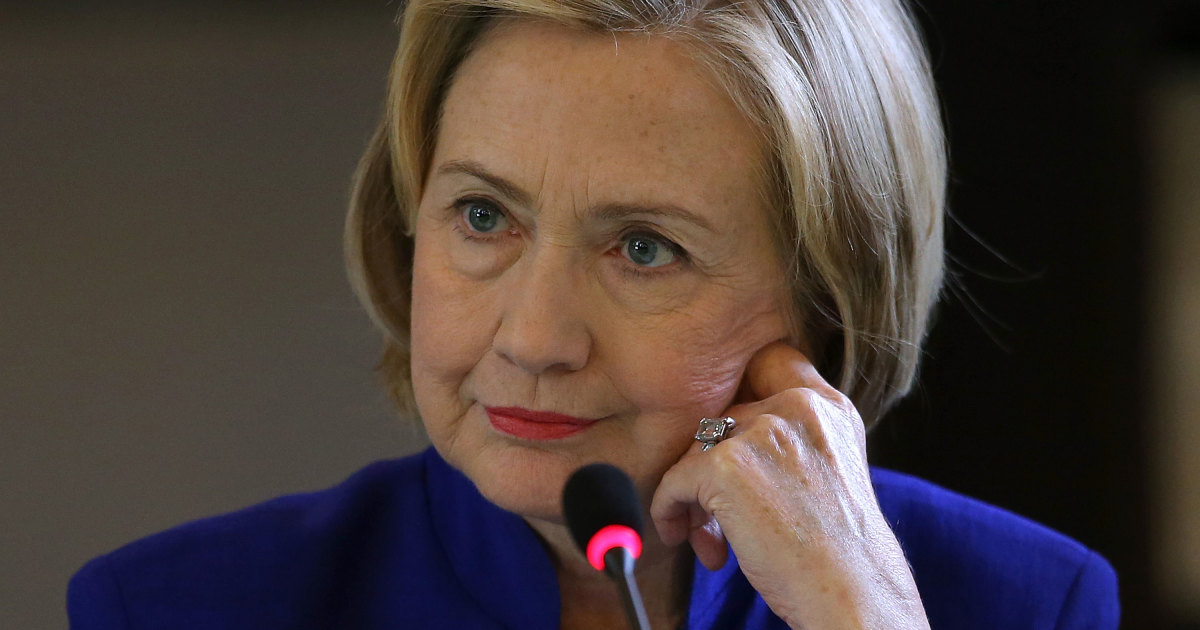After a year of investigations into Hillary Clinton’s use of a private serve to store official, classified government email communications during her tenure as Secretary of State, James Comey, FBI director, has announced that they will not be pursuing criminal charges.
Though investigators found no evidence of deliberate criminal conduct, Comey stated that Clinton and her associates were “extremely careless in their handling of very sensitive, highly classified information.”
Hillary is not completely off the hook yet. The FBI’s decision is not binding; ultimately, it will be up to the Department of Justice to determine whether or not criminal charges will be filed. Nonetheless, the investigation has clarified a number of concerns over the entire affair.
The matter first came to public attention in March of last year, while Mrs. Clinton was serving as Secretary of State. At that time, it was revealed that Mrs. Clinton had used her family’s private email server instead of government email accounts maintained by the Department of State when conducting official communications. As Mrs. Clinton announced her presidential run, the matter drew greater scrutiny (particularly from GOP members of Congress – no surprise, there).
According to allegations, some of those emails contained information of a “highly sensitive nature.” Ultimately, it was determined that 22 of the emails had been classified as “Top Secret,” while 65 more were “Secret.” Altogether, 113 of email messages in question were classified at the time they were sent. 2100 of the email messages were determined to contain “classified” information, though few of them were actually marked as being such at the time. Nonetheless, according to the non-disclosure agreement Mrs. Clinton was obligated to sign in order to get her security clearance, all such communications should have been assumed to be classified and dealt with appropriately.
The primary question has been: did Secretary of State Clinton actually do anything illegal? The FBI doesn’t believe so. However, the way she and her staff handled the email communications in question was extremely sloppy.
Here’s what happened.
Prior to her appointment as Secretary of State, Mrs. Clinton and her friends and colleagues, like so many people today, relied on smart phones (in this case, BlackBerry phones) for communications – both personal and official. The email account for Ms. Clinton’s phone was hosted on a private server, located in her own home in upstate New York. Mrs. Clinton had been warned that use of smart phones was inadvisable, as this could pose a security risk. Although the State Department provided Secretary Clinton with a personal computer, she found it easier and more convenient to simply continue using her BlackBerry.
Unfortunately, smart phones such as the BlackBerry are highly vulnerable to hackers – something of which Secretary Clinton was warned. She acknowledged such warnings, but that didn’t stop her from continuing the use of her BlackBerry.
It was in fact an infamous hacker – a Romanian national named Marcel Lazăr Lehel who goes by the handle of “Guccifer” – who revealed the existence of “clintonemail.com,” HRC’s own personal domain. Lehel has been the mastermind behind numerous security breaches in his home country as well as the U.S. Eventually, he was jailed in Romania for his activities, but then extradited to the U.S. to face charges. He is currently incarcerated in Alexandria, Virginia, awaiting sentencing. The emails that Lehel obtained were a series of emails from former Bill Clinton aid and journalist Sidney Blumenthal, dealing with the Benghazi attacks of 2012.
As it turns out, Blumenthal lacked security clearance, and was not authorized to receive classified communications from Clinton. This led to an investigation by lawyers for the State Department. This in turn sparked the Congressional inquiry into the entire Benghazi affair. That investigation ultimately revealed that Secretary Clinton had been using her personal email server instead of the official government server during her tenure.
This is where it gets into a gray area, legally speaking. While Mrs. Clinton’s use of a personal email account is the most infamous example, she is not the first government official to do so. Previous Secretaries of State have done the same thing, including Colin Powell. In fact, under the Federal Records Act, government officials are allowed to use personal email accounts for official business – provided that the agency in question keeps a record all communications. Under regulations of the National Archives and Records Administration, a government agency must maintain such records in a way that is easily accessible to Congress and authorized investigators.
Nonetheless, the State Department’s Inspector General, Steven Linick, determined that Mrs. Clinton and her staff “did not comply with the Department’s policies that were implemented in accordance with the Federal Records Act.” Furthermore, he states that they have been less than cooperative, which flies in the face of what Ms. Clinton herself has stated.
Regarding the emails that were found to contain classified information (some of which were “Top Secret”), FBI director Comey says “None of these emails should have been on any kind of unclassified system.” He adds, “Even if information is not marked classified in an email, participants who know that the subject matter is classified are still obligated to protect it.”
Nonetheless, Comey and the FBI have been unable to find any evidence that would support criminal charges. He told the media that there would have to be “some combination of clearly intentional and willful mishandling of classified information, or materials exposed in such a way as to support an inference of intentional misconduct, or indications of disloyalty to the United States, or efforts to obstruct justice,” adding, “We do not see these things here.”
The bottom line: had Hillary Clinton acted willfully to undermine the government, she would most certainly face a criminal indictment, and even charges of treason. However, there is no evidence of intent – simply carelessness. Unlike regular citizens, people like Hillary Clinton can claim they just didn’t know they were breaking the law, and that’s good enough for the FBI!
Still, one wonders that if, as Secretary of State, Hillary Clinton was that sloppy in her handling of classified information, can she be trusted in the Oval Office?





